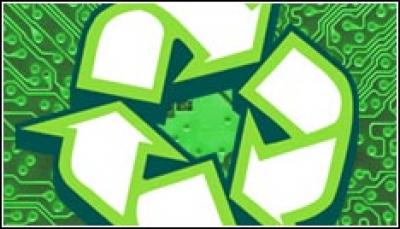Apple and Sony Praised For Toxic Progress

Seven companies have been singled out for their progress on cutting toxic chemical compounds in hardware
Hardware makers Sony, Apple and Seagate have seen their progress to cut the use of brominated and chlorinated chemicals acknowledged in a report.
The Greening Consumer Electronics: Moving Away from Bromine and Chlorine report released this week examines seven tech companies which the authors believe have made real progress when it comes to using the toxic substances in their hardware.
Rather than naming and shaming companies that haven’t progressed sufficiently, the report from chemical industry body International Chemical Secretariat and environmental group Clean Production Action (CPA) praises Apple, Sony, Seagate and other for their efforts in cutting use of the substances.
“These seven companies demonstrate that there are less toxic and still cost effective alternatives to substances of high concern that do not compromise performance or reliability,” said CPA project director Alexandra McPherson. “They are well positioned to gain competitive advantage in a marketplace and regulatory environment increasingly sensitive to the use of toxic chemicals in consumer products.”
According to the CPA, the use of brominated flame retardants (BFRs) and polyvinyl chloride (PVC) gained in the plastics used to make computers and mobile phones attracted a lot of negative publicity when scientific studies demonstrated their link to the formation of highly toxic dioxin compounds. “Dioxin, a potent human carcinogen that is toxic in very low amounts, along with other problematic compounds, are unintentionally released into the environment during the burning and smelting of electronic waste,” the group said in a statement.
The CPA added that the fact that a lot of waste computers and mobile phones are being illegally exported to developing countries without the ability to safely break-down and recycle the equipment means there is more likelihood that toxic substances will end up in watercourses or sediment.
“The current recycling and waste infrastructure to safely reuse and recycle obsolete equipment is insufficient for the fastest growing waste stream in the world. Furthermore, much of the waste is increasingly shipped to developing countries with even less capacity for appropriate waste management,” the organisation added. “Many studies document the accumulation of these widespread pollutants in air, water, soil, and sediment, where they are increasingly ingested by humans and animals.”
Specifically the report states that Apple has established a programme that restricts the use of most bromine and chlorine compounds across all its product lines. “As such, Apple now offers a wide range of PVC and BFR free consumer products including iPhones and iPods, as well as computers that are free of BFRs and most uses of PVC,” the report said.
Sony Ericsson meanwhile is not only removing toxic substances from products but also attempting to establish an inventory of chemical use in all its product lines. “The company’s products are now 99.9 percent BFR free and will have no PVC components by the end of 2009,” the product stated.
Disk drive manufacturer Seagae is buidling disk drives that no longer use chlorine- and bromine-based substances, the report added.
Late last month, Apple launched a green marketing program aimed to counter criticism from Greenpeace and other environmentalists, over the use of toxic substances in its PC manufacture. When Apple shipped its iPhone 3GS earlier this year, it said it was free of BFRs, PVC, arsenic, and mercury and includes a power adapter that “outperforms the strictest global energy efficiency standards”.